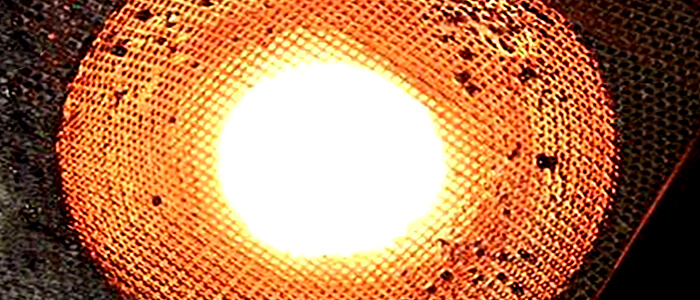As a key component for purifying molten metal during the casting process, the filtration efficiency of fiber glass filters directly affects the internal quality and mechanical properties of castings. This paper systematically analyzes the three major factors affecting filtration efficiency – material properties, process parameters and use conditions, and proposes optimization suggestions based on actual engineering experience to provide theoretical guidance and practical reference for casting process personnel.
Introduction
In the metal casting process, non-metallic inclusions (such as oxides, slag, and refractory debris) contained in molten metal are the main causes of defects such as pores and slag inclusions in castings. Fiber glass filters can effectively remove these impurities through mechanical interception and adsorption, but their filtration efficiency is not constant, but is affected by the comprehensive influence of the material properties, the state of the molten metal, and the conditions for the implementation of the process. A deep understanding of these influencing factors is of great significance for the rational selection of filters and the optimization of casting processes.
The influence of material properties on filtration efficiency
Fiber material and temperature resistance
The base material of the fiber glass filter determines the type of metal it is suitable for. According to the differences in different production processes, it is divided into aluminum liquid filter, iron liquid filter, and steel liquid filter suitable for different temperatures, which are respectively suitable for filtering aluminum water, iron water, steel water, copper water, and even other metal liquids.
Aluminum liquid filter can work stably in the range of 650~800℃, and is suitable for low melting point metals such as aluminum alloy. However, when used for copper alloy or cast iron, iron liquid filter must be used. In actual production, it is found that if the filter is not heat resistant enough, not only will the filtration efficiency drop sharply, but new impurities may also be introduced due to fiber melting.
Influence of process parameters on filtration efficiency
Metal liquid state
The temperature, viscosity and oxidation tendency of the metal liquid are the core influencing factors. Excessive pouring temperature will accelerate the deterioration of the filter. A case shows that high viscosity metals (such as cast iron) require a larger aperture to ensure flow, but a balance must be achieved between filtration accuracy and fluidity. For easily oxidized alloys (such as magnesium-containing aluminum alloys), a finer mesh filter is required to intercept tiny oxides.
Casting system design
The installation position of the filter and the calculation of the filter area are crucial. Engineering practice shows that the best filtering effect can be achieved by setting the filter at the bottom of the sprue (more than 150mm from the cavity). If it is installed in the middle of the runner, it is easy for impurities to deposit prematurely and block the mesh due to flow inertia. Insufficient filter area is a common mistake, which will cause the metal liquid to flow too fast, not only reducing the filtration efficiency, but also destroying the filter structure.
Casting operation specifications
The control of casting speed is often ignored. Excessive flow rate (such as aluminum alloy>1.2m/s) will cause impurities to break through the interception limit of the filter. A certain auto parts factory once tilted the ladle too fast, causing inclusions larger than 100μm that should have been intercepted by the 16-mesh filter to enter the cavity, resulting in batch scrap. In addition, the necessity of preheating the filter cannot be ignored. When the cold filter suddenly contacts the high-temperature metal liquid, thermal shock cracks are prone to occur.
Influence of use conditions on filtration efficiency
Installation sealing
The clearance between the filter screen and the pouring system must be strictly controlled. Using refractory mud or high temperature resistant ceramic fiber paper for sealing is an effective solution.
Optimization strategy and latest progress
Systematic selection method
First, determine the material grade and match the mesh size according to the alloy type and molten metal temperature.
Composite structure design
Gradient filtration technology combines filters with different mesh sizes, such as 10 mesh inlet + 16 mesh outlet, to improve filtration accuracy while ensuring flow.
Conclusion
The efficiency of fiber glass filter mesh is the result of multiple factors, among which:
Material properties set the theoretical upper limit of filtration efficiency
Process parameters determine the actual efficiency level that can be achieved
Use conditions affect the stability and durability of efficiency.


